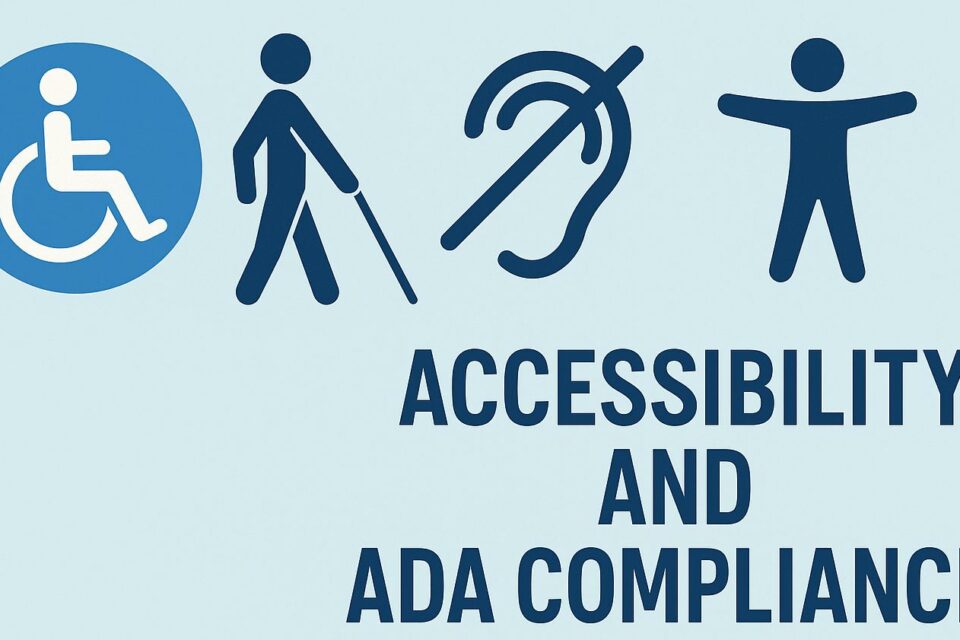Userway faces class action lawsuit over alleged false accessibility and ADA compliance claims

Userway is facing a class action lawsuit filed by Bloomsybox.com, LLC, accusing the company of making misleading claims about its accessibility widget. The lawsuit, filed at Delaware District Court, alleges that Userway promoted its product as a simple, foolproof solution for achieving ADA compliance but failed to deliver on its promises, leaving businesses vulnerable to legal action.
According to the court documents, Userway promoted its widget as an easy fix for making websites ADA-compliant and aligning with Web Content Accessibility Guidelines (WCAG). Businesses were assured that a single line of code would not only ensure compliance but also shield them from lawsuits, with the added promise of legal support if disputes arose.
The lawsuit claims these assurances were exaggerated. Bloomsybox alleges that the widget didn’t ensure compliance and, in some cases, made websites harder to use for people with disabilities. Rather than reducing legal risks, businesses using the widget were reportedly more likely to face lawsuits.
“Plaintiff brings this action seeking damages caused by Userway’s misleading and false representations in its advertising, its direct marketing, its standard form correspondences with customers, and in its standard form contract regarding its “overlay” products that purport to adjust any website’s underlying code to ensure that the website meets all legal and regulatory standards needed to comply with Title III of the Americans with Disabilities Act (“ADA”). Plaintiff further seeks injunctive relief that would require Userway to discontinue its deceptive practices,” the lawsuit reads.
Bloomsybox’s Experience
For Bloomsybox, an online flower delivery service, the widget seemed like a practical solution. The company subscribed in 2023, relying on Userway’s claims of ADA compliance and legal protection. Despite this, Bloomsybox was hit with an ADA lawsuit.
When Bloomsybox sought legal help from Userway, the company requested an upgrade to an annual subscription. Even after upgrading, the support was limited to a generic guide with no actionable assistance. The company eventually spent $4,000 on external legal fees and settled the case independently. Bloomsybox argues that it wouldn’t have subscribed if it had known the widget would fail to deliver as advertised.
Mounting Lawsuits for Widget Users
The lawsuit highlights a troubling pattern: businesses using Userway’s product have been frequent targets of ADA-related lawsuits. Industry experts and watchdogs have criticized accessibility overlay tools like Userway’s widget, stating that automated solutions cannot fully meet WCAG compliance requirements. Studies suggest that such tools often interfere with assistive technologies, creating additional challenges for users with disabilities.
Broader Implications
Accessibility advocates emphasize that true ADA compliance requires manual remediation and regular testing. Automated tools, like Userway’s widget, cannot replace these critical processes. According to a 2021 Overlay Fact Sheet endorsed by accessibility experts, overlays not only fall short of compliance but can actively hinder usability.
Class Action and Legal Claims
Bloomsybox seeks to represent others who purchased Userway’s widget, alleging breaches of contract, consumer protection violations, and negligent misrepresentation. The lawsuit demands compensation for subscription costs, legal fees, and remediation expenses, along with an injunction to stop misleading advertising.
What’s Next?
This lawsuit could set a precedent for companies marketing accessibility solutions, forcing greater accountability for their claims. For Userway, the outcome may reshape its business practices and serve as a warning to other firms in the accessibility space. Businesses looking to improve website accessibility are reminded that meaningful compliance requires more than a quick fix—it demands real effort and expertise.
The case highlights the risks of relying on automated tools without verifying their effectiveness. As the legal proceedings unfold, the spotlight will remain on how accessibility providers deliver on their promises.




